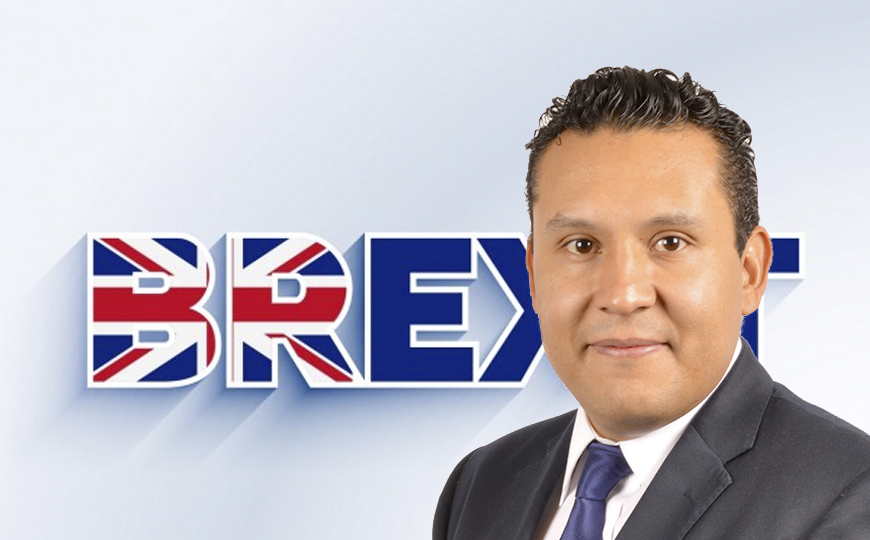In June 2016, the British people mandated their government, through a referendum majority vote of 52 %, to leave the European Union, a regional organization of which the UK has been a member since 1973.
In March 2017, the British government activated article 50 of the Lisbon Treaty, whereby a country that has decided to leave the union has two years to conclude the entire process. Originally, the final and fatal deadline was March 29th 2019. However, to this day the British Parliament has rejected the terms of separation four times. On its part, the European Union (EU) has extended the deadline twice, setting October 31st as the day in which Brexit should be finally concluded.
What is at stake in the negotiation table between the British government and the EU that has made the negotiations so difficult?
In short, there are four contentious issues at stake :(1) the post Brexit commercial relationship between the EU and the United Kingdom (UK). (2) The post Brexit UK budget contributions to the EU. (3) Residence permits for UK citizens living in the EU (1.2 million estimated) and EU citizens living in the UK (3 million estimated). (4) The belligerent issue of a physical frontier between North Ireland and Ireland.
So, why hasn’t there been a negotiated exit for Brexit? In general terms, there are two trends that are in play.
The first one is that the Brexit negotiations are being conducted in three levels, emaking the process even more complex. The first is the intergovernmental level between the UK government and the EU authorities. However, the preferences of the UK are defined at the second negotiating level, that is, between political factions inside the British Parliament –all of which have very different, and sometimes opposed views, on how to achieve Brexit. One political faction does not want the breakup with the EU because of the economic interdependence between the UK’s economy and the regional block (45% of UK exports go to the EU), and because of the fear of reviving old political tensions between the Irelands. Another political faction is conditioning the withdrawal with an ex ante divorce agreement (soft Brexit). A third faction is promoting the divorce without agreement (hard Brexit).
On the part of the EU (the third level), there are some countries in favor of a hard Brexit such as France and Belgium. Others are in favor of a soft Brexit such as Spain or Germany, who are concerned about the possible reinstallation of a border between the two Irelands. Furthermore, from the perspective of EU authorities, it is important to increase the cost of abandoning the block to discourage other members from following UK’s footsteps.
The second trend in play is the ‘economic integration dilemma’ confronting every country that wants to be part of a regional integration mechanism. The dilemma is defined in the following terms. The benefits of being part of a regional block result from the economic gains of market access. In the case of the EU, it is the world’s largest regional market representing 16% of the global GDP. In exchange, the government that seeks integration has to resign to some realms of sovereignty. For example, the UK as a member of the EU had to renounce to an independent border and to certain economic policies (regardless of the fact that the UK has never been part of the euro zone).
This second trend, I argue, is at the center of the British parliament’s incapacity to approve a negotiated Brexit.
For example, despite the fact that the post Brexit option –called Common Market 2.0- would have given the UK the biggest access to the European market, it was rejected with 282 negative votes in parliament. The reason was that this option would have forced the UK to observe may EU laws and to contribute to the EU budget, while at the same time stripping the UK of its voting privileges and overall voice in EU decision-making processes.
Another example relates to the option of hard Brexit. This option has been countered with parliamentary proposals to repeal Brexit if a negotiated exit is not achieved. The hard Brexit keeps UK’s sovereignty intact but it only guarantees minimal market access under the dispositions of the World Trade Organization.
The cost of this scenario is too high given the intense interdependence between the economies of the UK and the EU (40% of the EU foreign investment goes to the UK, and 40% of the UK’s financial sector exports goes to the EU).
On September 9th, Parliament issued a law forcing pro hard Brexit liner, Prime Minister Boris Johnson, to choose between reaching an agreement or asking the EU for a third extension until January 2020. Johnson has responded that he would rather be “dead in a ditch.” The problem is that on October 19th the established deadline to reach an agreement runs out and odds for a soft Brexit continue to wither away.
As explained before, there are two powerful political trends that have made it impossible to reach a rational divorce. Let’s see if in the days ahead the danger of going over the edge overcomes the political imperatives that have determined the situation.
|
Dr. Derzu Daniel Ramírez |




